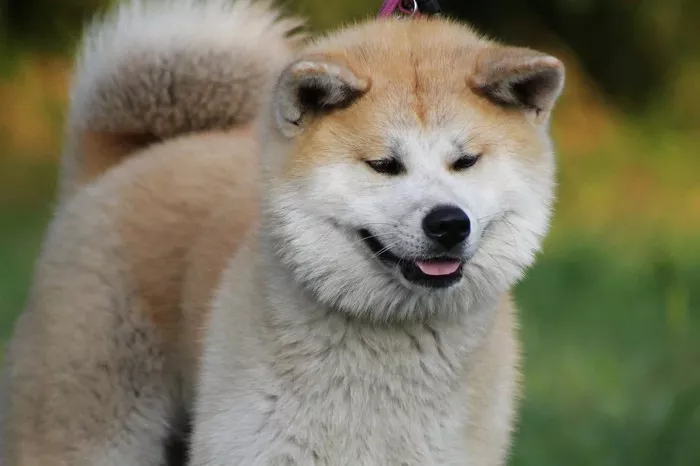Akitas, known for their noble stature and loyal nature, require careful attention to their diet and weight management. Proper nutrition is essential for their overall health, and maintaining an ideal weight is crucial for preventing health issues. In this comprehensive guide, we will explore meal frequency, appropriate portion sizes, weight management strategies, and key considerations for what to avoid in your Akita’s diet.
Meal Frequency for Akitas: Balancing Nutrition and Digestion
Determining the right meal frequency for your Akita is a critical aspect of their overall health and well-being. Akitas, like many large breeds, benefit from a balanced feeding schedule. Providing two meals a day is a common approach for adult Akitas. This helps in preventing issues like bloat, a condition more common in deep-chested breeds. For Akita puppies, a more frequent feeding schedule, such as three meals a day, may be appropriate to support their growth and energy needs.
How Much? Portion Sizes Tailored to Your Akita’s Needs
Understanding the appropriate portion sizes for your Akita is vital for maintaining a healthy weight. The amount of food your Akita requires can depend on various factors, including age, activity level, metabolism, and overall health. A general guideline for adult Akitas is to provide 3 to 5 cups of high-quality dog food per day, divided into two meals. However, it’s crucial to adjust portion sizes based on your Akita’s individual needs, closely monitoring their weight and adjusting their diet accordingly.
Weight Management: Striking the Right Balance
Akitas, with their robust build, are prone to weight gain, which can contribute to health issues such as joint problems and reduced mobility. Weight management is a key aspect of Akita care. Regular monitoring of your Akita’s weight and body condition is essential. Ideally, you should be able to feel your Akita’s ribs without them being overly visible. If you’re unsure about your Akita’s weight or have concerns, consult with your veterinarian, who can provide guidance on an appropriate weight management plan.
What to Avoid
Maintaining a healthy diet for your Akita involves not only knowing what to include but also what to avoid. Certain foods and practices can be detrimental to your Akita’s health:
Avoid Overfeeding: Overfeeding is a common pitfall that can lead to obesity. Be mindful of portion sizes and avoid free-feeding, where food is constantly available. Measure your Akita’s food to ensure they receive the appropriate amount for their size and activity level.
Say No to Table Scraps: While it can be tempting to share scraps from your table, many human foods can be harmful to dogs. Onions, garlic, chocolate, and caffeine are just a few examples of foods that can be toxic to Akitas. Stick to a well-balanced, canine-appropriate diet to prevent accidental ingestion of harmful substances.
Limit High-Calorie Treats: Treats are a great way to reward your Akita, but it’s essential to choose treats wisely. Limit high-calorie treats and opt for healthier alternatives, such as small pieces of lean meat or dog-friendly fruits and vegetables. This helps prevent excessive calorie intake.
Watch for Allergies: Akitas can be prone to food allergies, which can manifest as digestive issues, skin problems, or ear infections. Pay attention to your Akita’s reaction to different foods, and consult with your veterinarian if you suspect a food allergy. A hypoallergenic or limited-ingredient diet may be recommended.
Bones and Chews with Caution: While bones and chews can be a source of enjoyment for Akitas, they should be provided with caution. Cooked bones, especially those that splinter easily, can pose a choking hazard or cause intestinal blockages. Choose safe, durable chews designed for dogs to minimize the risk of injury.
Be Mindful of Sodium Intake: Akitas, like many breeds, are sensitive to excessive sodium intake. High-sodium foods can contribute to health issues such as hypertension. Avoid feeding your Akita excessively salty foods, and choose dog food with moderate sodium content.
Monitor for Food Aggression: Akitas are known for their strong guarding instincts. When feeding multiple Akitas together, monitor for signs of food aggression. It may be necessary to separate them during mealtime to prevent conflicts over food.
Special Considerations for Akita Puppies
Akita puppies require special attention to ensure proper growth and development. Here are some considerations for feeding Akita puppies:
Choose a Puppy-Specific Diet: Opt for a high-quality puppy food specifically formulated to meet the nutritional needs of large breed puppies, including Akitas. These formulations typically have controlled calcium and phosphorus levels to support healthy bone development.
Divide Meals for Growth: Puppies undergo rapid growth, and dividing their meals into three or four smaller portions throughout the day helps support their energy needs and prevents overloading their digestive system.
Avoid Rapid Growth: Akitas are prone to orthopedic issues, and rapid growth can exacerbate these problems. Avoid overfeeding to prevent excessive weight gain and opt for a controlled growth rate.
Monitor for Allergies: Puppyhood is a crucial time to monitor for potential food allergies. Introduce new foods gradually and observe for any adverse reactions, consulting with your veterinarian if needed.
Regular Vet Check-ups: Schedule regular veterinary check-ups for your Akita puppy to monitor their growth, receive vaccinations, and address any health concerns promptly.
Conclusion
In conclusion, providing optimal nutrition and managing weight are fundamental aspects of caring for your Akita. Tailoring their meal frequency, portion sizes, and overall diet to their individual needs helps promote a healthy and fulfilling life. By being mindful of what to avoid and incorporating best practices, you contribute to your Akita’s overall well-being, ensuring they thrive as loyal companions and majestic members of your family. Regular veterinary consultations, a balanced diet, and a commitment to their health set the foundation for a happy and healthy life for your beloved Akita.


